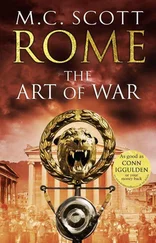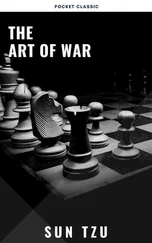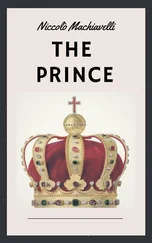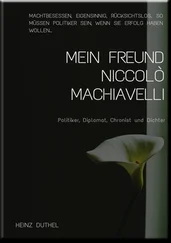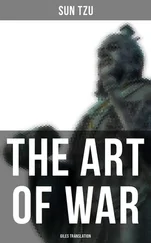But even if such an arrangement should give some hardship to those enrolled in it in times of peace, which I do not see, they are still recompensed by all those benefits which an army established in a City bring; for without them, nothing is secure. I conclude that whoever desires a small number in order to be able to pay them, or for any other reason cited by you, does not know (what he is doing); for it will also happen, in my opinion, that any number will always diminish in your hands, because of the infinite impediments that men have; so that the small number will succeed at nothing. However, when you have a large organization, you can at your election avail yourself of few or of many. In addition to this, it serves you in fact and reputation, for the large number will always give you reputation. Moreover, in creating the organization, in order to keep men trained, if you enroll a small number of men in many countries, and the armies are very distant from each other, you cannot without the gravest injury to them assemble them for (joint) exercises, and without this training the organization is useless, as will be shown in its proper place.
COSIMO
What you have said is enough on my question: but I now desire that you resolve another doubt for me. There are those who say that such a multitude of armed men would cause confusion, trouble, and disorder in the country.
FABRIZIO
This is another vain opinion for the reason I will tell you. These organized under arms can cause disorders in two ways: either among themselves, or against others; both of these can be obviated where discipline by itself should not do so: for as to troubles among themselves, the organization removes them, not brings them up, because in the organization you give them arms and leaders. If the country where you organize them is so unwarlike that there are not arms among its men, and so united that there are no leaders, such an organization will make them more ferocious against the foreigner, but in no way will make it more disunited, because men well organized, whether armed or unarmed, fear the laws, and can never change, unless the leaders you give them cause a change; and I will later tell you the manner of doing this. But if the country where you have organized an army is warlike and disunited, this organization alone is reason enough to unite them, for these men have arms and leaders for themselves: but the arms are useless for war, and the leaders causes of troubles; but this organization gives them arms useful for war, and leaders who will extinguish troubles; for as soon as some one is injured in that country, he has recourse to his (leader) of the party, who, to maintain his reputation, advises him to avenge himself, (and) not to remain in peace. The public leader does the contrary. So that by this means, the causes for trouble are removed, and replaced by those for union; and provinces which are united but effeminate (unwarlike) lose their usefulness but maintain the union, while those that are disunited and troublesome remain united; and that disordinate ferocity which they usually employ, is turned to public usefulness.
As to desiring that they do us injury against others, it should be kept in mind that they cannot do this except by the leaders who govern them. In desiring that the leaders do not cause disorders, it is necessary to have care that they do not acquire too much authority over them. And you have to keep in mind that this authority is acquired either naturally or by accident: And as to nature, it must be provided that whoever is born in one place is not put in charge of men enrolled in another place, but is made a leader in those places where he does not have any natural connections. As to accidents, the organization should be such that each year the leaders are exchanged from command to command; for continuous authority over the same men generates so much unity among them, which can easily be converted into prejudice against the Prince. As to these exchanges being useful to those who have employed them, and injurious to those who have not observed them, is known from the example of the Kingdom of Assyria and from the Empire of the Romans, in which it is seen that the former Kingdom endured a thousand years without tumult and without civil war; which did not result from anything else than the exchanges of those Captains, who were placed in charge of the care of the armies, from place to place every year. Nor, for other reasons, (did it result) in the Roman Empire; once the blood (race) of Caesar was extinguished, so many civil wars arose among the Captains of the armies, and so many conspiracies of the above mentioned Captains against the Emperors, resulting from the continuing of those Captains in their same Commands. And if any of those Emperors, and any who later held the Empire by reputation, such as Hadrian, Marcus, Severus, and others like them, would have observed such happenings, and would have introduced this custom of exchanging Captains in that Empire, without doubt they would have made it more tranquil and lasting; for the Captains would have had fewer opportunities for creating tumults, and the Emperors fewer causes to fear them, and the Senate, when there was a lack in the succession, would have had more authority in the election of Emperors, and consequently, better conditions would have resulted. But the bad customs of men, whether from ignorance or little diligence, or from examples of good or bad, are never put aside.
COSIMO
I do not know if, with my question, I have gone outside the limits you set; for from the Deletto we have entered into another discussion, and if I should not be excused a little, I shall believe I merit some reproach.
FABRIZIO
This did us no harm; for all this discussion was necessary in wanting to discuss the Organization (of an Army), which, being censured by many, it was necessary to explain it, if it is desired that this should take place before the Deletto. And before I discuss the other parts, I want to discuss the Deletto for men on horseback. This (selection) was done by the ancients from among the more wealthy, having regard both for the age and quality of the men, selecting three hundred for each legion: so that the Roman cavalry in every Consular army did not exceed six hundred.
COSIMO
Did you organize the cavalry in order to train them at home and avail yourself of them in the future?
FABRIZIO
Actually it is a necessity and cannot be done otherwise, if you want to have them take up arms for you, and not to want to take them away from those who make a profession of them.
COSIMO
How would you select them?
FABRIZIO
I would imitate the Romans: I would take the more wealthy, and give them leaders in the same manner as they are given to others today, and I would arm them, and train them.
COSIMO
Would it be well to give these men some provision?
FABRIZIO
Yes, indeed: but only as much as is necessary to take care of the horse; for, as it brings an expense to your subjects, they could complain of you. It would be necessary, therefore, to pay them for the horse and its upkeep.
COSIMO
How many would you make? How would you arm them?
FABRIZIO
You pass into another discussion. I will tell you in its place, which will be when I have said how the infantry ought to be armed, and how they should prepare for an engagement.
Part 2
Конец ознакомительного фрагмента.
Текст предоставлен ООО «ЛитРес».
Прочитайте эту книгу целиком, купив полную легальную версию на ЛитРес.
Безопасно оплатить книгу можно банковской картой Visa, MasterCard, Maestro, со счета мобильного телефона, с платежного терминала, в салоне МТС или Связной, через PayPal, WebMoney, Яндекс.Деньги, QIWI Кошелек, бонусными картами или другим удобным Вам способом.


